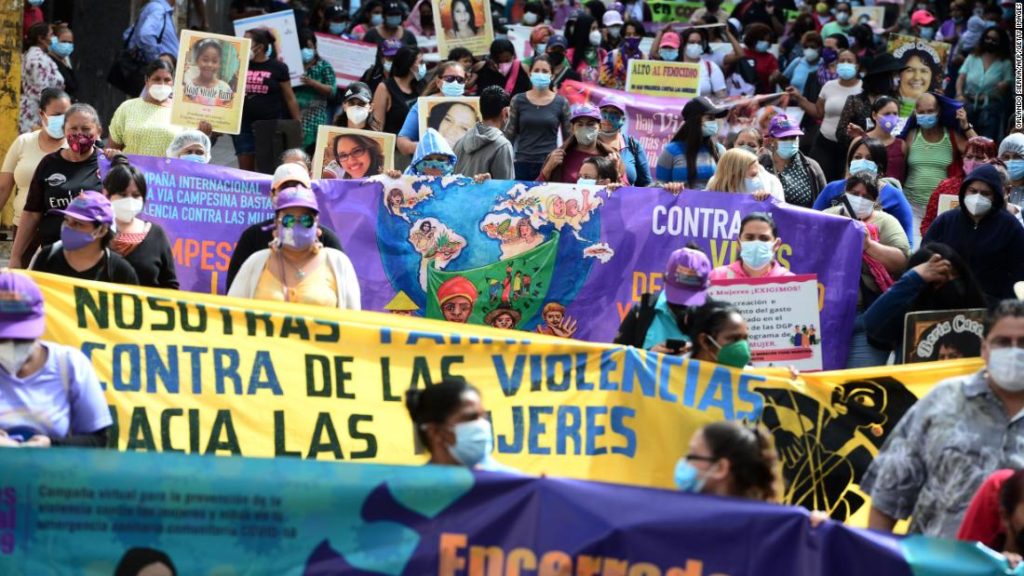Honduras was already one of few countries worldwide with a complete ban on abortion, meaning the operation can’t be performed even in cases of rape or incest, when the fetus is gravely deformed, and if the pregnancy endangers the mother’s life. The use, sale, distribution and purchase of emergency contraception is also prohibited.
The new reform, known as “Shield Against Abortion in Honduras” and promoted by Honduran President Juan Orlando Hernandez’s ruling National Party, also now creates a legal “shield” against future changes to the ban.
The changes raise the Congressional voting threshold to modify abortion law from two-thirds majority to three-quarters. Since Honduras’s unicameral Congress has 128 deputies, the new rules would require at least 96 to vote for future changes to these articles — an unlikely scenario at the moment, since 86 voted for the amendments.
The reform also blocks any future attempts to repeal or modify the change. “Legal provisions created after the effective date of this Article that establish otherwise, will be null and void,” states the ruling from the Congressional commission appointed to the matter.
Women’s rights advocates have fiercely condemned the change. Merly Eguigure, an activist with the Honduran rights organization Movimiento de Mujeres por La Paz “Visitación Padilla” told CNN it would only reinforce dangerous conditions for Honduran women.
“The shield law will continue to condemn poor women to practice abortion in unsafe conditions, which could lead to death on the one hand or to prison on the other,” Eguigure said.
According to September 2020 report by the World Health Organization, unsafe abortions account for between 4.7% and 13.2% of maternal deaths globally, each year. The report also notes that “restrictive laws are not effective in reducing the rate of abortion.”
An epidemic of sexual violence
In 2018, Doctors Without Borders (MSF) carried out a health campaign aimed at providing medical and mental health care to survivors of sexual violence in Mexico and Honduras. In the Honduran capital city of Tegucigalpa, 90% of all pregnancy cases attended by the MSF mission were due to sexual assault.
Political pressures in a major election year
Nevertheless, for over 30 years the Honduran government has clung to a system that penalizes women with up to six years of prison for obtaining an abortion, even in cases of rape or incest.
Pressure from Honduran religious groups is widely seen as the dominant political force in maintaining such strict laws on abortion.
Eguigure, the women’s rights activist, put it more bluntly. “The country is coopted by religious fanatics.”
2021 is a major election year in Honduras, with both the presidency and all 128 seats of Congress up for grabs. Though abortion is not a historically decisive voting issue for Hondurans, the topic may have been particularly sensitive amid the recent wave of pro-choice rulings in the region.
But Neesa Medina, a member of feminist collective Somos Muchas, told CNN she believes its extreme anti-abortion stance cannot endure forever. The shield law reveals a real fear of Latin America’s growing pro-choice movement, she believes.
“They don’t realize that it’s impossible to stop the future,” said Medina.
Reporting contributed by CNN en Español’s Elvin Sandoval and CNN’s Jack Guy.
You may also like
-
Afghanistan: Civilian casualties hit record high amid US withdrawal, UN says
-
How Taiwan is trying to defend against a cyber ‘World War III’
-
Pandemic travel news this week: Quarantine escapes and airplane disguises
-
Why would anyone trust Brexit Britain again?
-
Black fungus: A second crisis is killing survivors of India’s worst Covid wave

